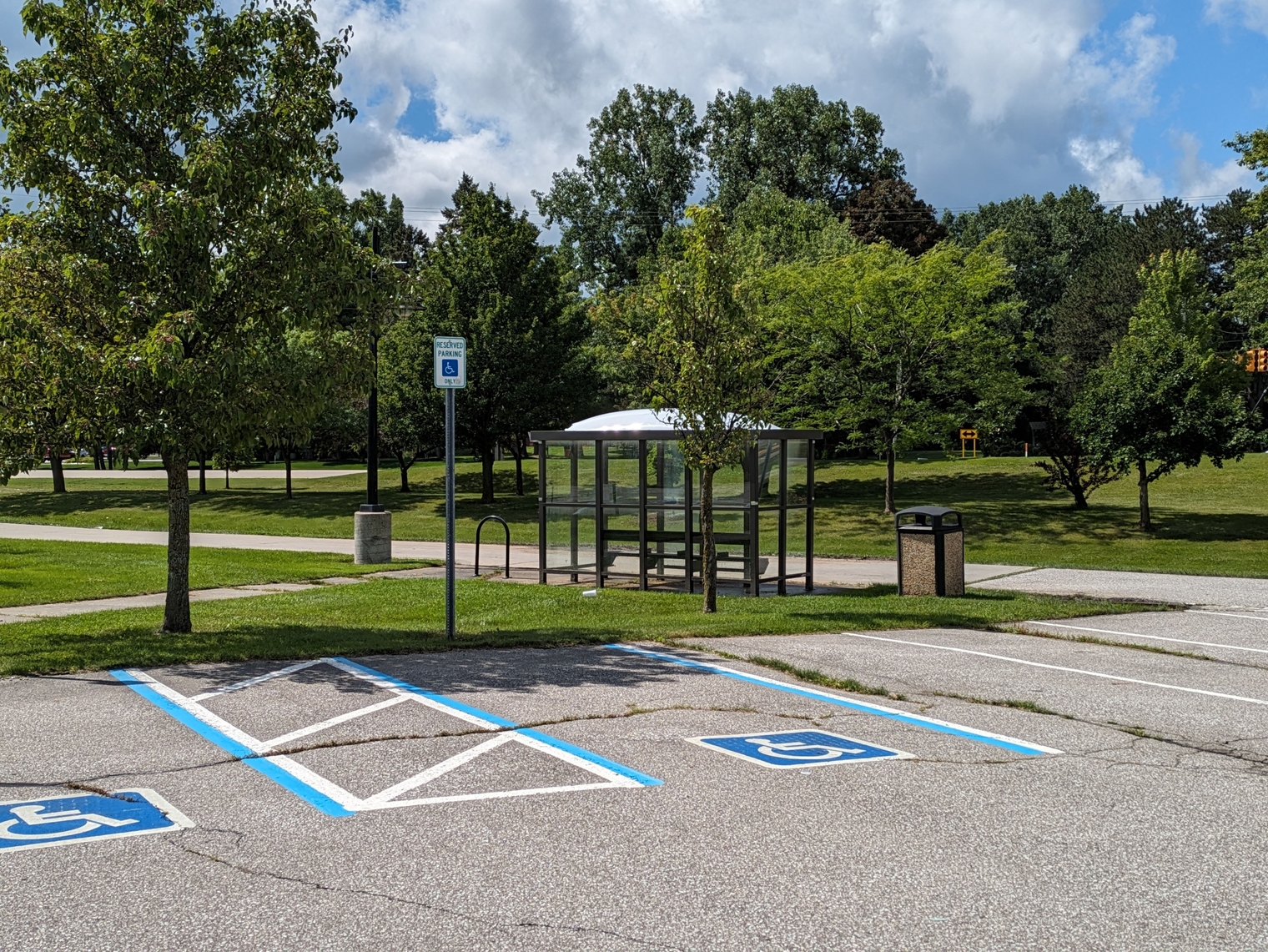102nd Legislature, Week 64: Buses in Carpool Lots, Car Sharing

The official MDOT Park and Ride lot in Bridgeport, off I-75 Exit 144.
Buses in Carpool Lots
On Thursday, September 26th, Rep. Steckloff (D-Farmington Hills) introduced House Bill 5969 alongside Reps. Arbit, Price, and Conlin. This bill would amend the Public Highways and Private Roads Act to "allow access to park-and-ride lots for transit agencies that seek to use park-and-ride lots as intermodal transfer points, whether or not state transportation department accommodations were provided in the construction of the park-and-ride lot."
The bill is awaiting a hearing in the House Committee on Transportation, Mobility, and Infrastructure . It's currently unclear if this committee will convene prior to the November election.
In essence, this grants local providers such as SMART, MTA Flint, CATA, TheRide, and others express permission to keep doing what they've been doing: Run buses into state-operated carpool lots to serve commuters traveling in and out of metro areas.
You're probably thinking, "What? That wasn't allowed already?" Implicitly, it was, and until recently there was never any reason to challenge that this was the intended purpose of Park and Ride lots on the edges of metro areas across Michigan. That changed in the summer of 2023, when Davison Township made the decision to forcibly remove Greyhound from an MDOT Park and Ride lot operated in partnership with Meijer. See my previous coverage for the full story , but in short: The move drew considerable public attention, leading MDOT's Carpool Parking Lot Coordinator to issue a statement claiming that use of these lots as a bus stop "for any large passenger bus vehicles" was never authorized.
This legislation simply codifies the widely understood and accepted use of Park and Ride lots as a feature of bus systems, undoing the damage this decision inflicted upon established transit services operated by multiple providers in Michigan. Speaking as myself, I am in full support.
Road and Bridge Disaster Relief Fund
House Bill 5945 , introduced on Tuesday, September 24th by Reps. Shannon and Conlin, would allocate $5M in annual gas tax revenue, up to a limit of $50M, for emergency repairs to roadways and bridges should a state of emergency be declared. A new board comprised of various state and local officials would be established to oversee distribution of these funds.
Peer-to-Peer Car Sharing
House Bills 5949 , 5950 , and 5951 , tie-barred bills which establish a peer-to-peer car sharing program and provide for insurance and liability exceptions, respectively, were introduced on Thursday. This appears to be a reintroduction of a similar bill package from 2022 . Peer-to-peer car sharing, an alternative to traditional rental car service, has been regulated in California, Oregon, Washington, Maryland, and Colorado.
If you've ever used Zipcar, you've seen the concept of peer-to-peer car sharing in action. They aren't legally considered P2P as the company owns the cars available for rent on the platform, but the idea is similar: Someone lists their private vehicle on a public marketplace for others to borrow and return, not unlike Airbnb. Turo is currently the largest of these marketplaces. The primary legislative concern, just like with vacation rentals, is who would be held liable should something go wrong.
As long as we all agree that this is not to be touted as an answer to our lack of adequately funded public transportation (we will be listening during this bill's committee hearing), then this is fine. But it must be presented as "both/and".